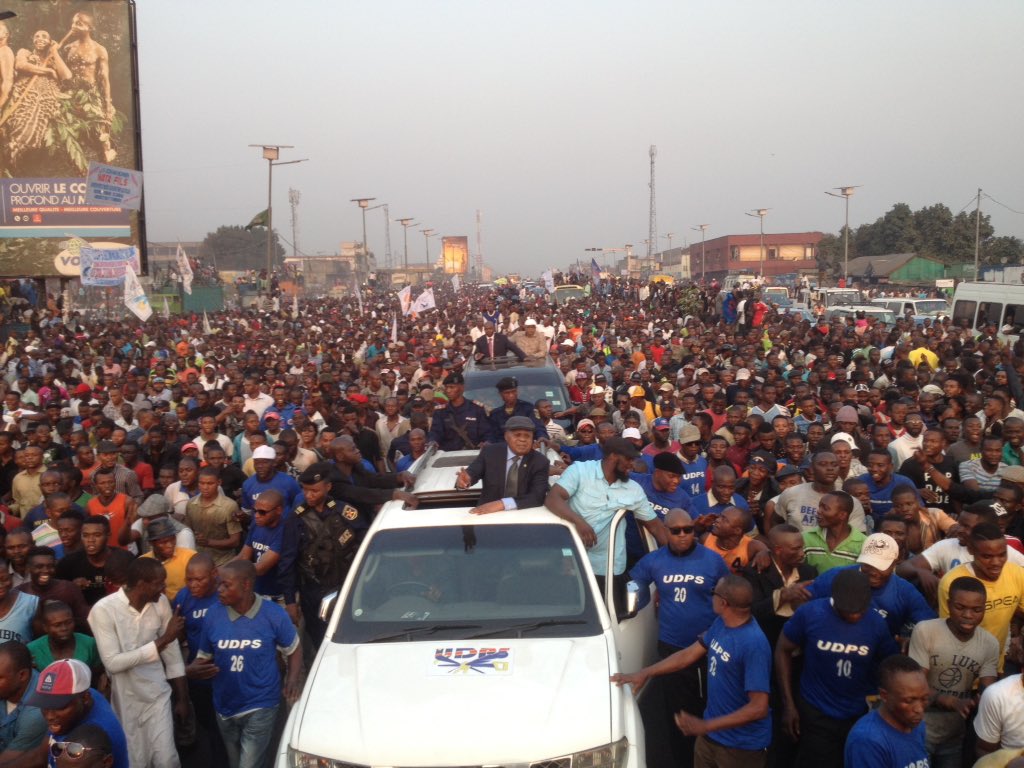During the run-up to the 2011 elections, Roger Meece visited Washington, DC. Meece, then the head of the UN peacekeeping mission to the Congo, was perhaps the US diplomat with the best understanding of the country. He had served as deputy chief of mission to the Congo between 1995-1998, as director for Central African Affairs at the State Department between 1998-2000, and as ambassador between 2004-2007.
The 2011 elections were going to be won either by Joseph Kabila or Etienne Tshisekedi. In meetings with people inside and outside State Department, Meece’s analysis was clear: Tshisekedi was the wrong choice for the country. He was a dangerous firebrand who could upend the fragile peace process that had swept in a new era of democracy to the country.
Meece was not alone in his analysis. Few western diplomats had much love for « Ya Tshitshi. » They perceived him to be stubborn, misguided and aloof. It is not difficult to understand this perception. Among his policy missteps in recent years have figured an ill-advised coalition with the unpopular Congolese Rally for Democracy (RCD) rebels in 2002; a boycott of the 2005 registration process and of the 2006 elections; and tolerance of virulent anti-Tutsi demagoguery by some of his UDPS members during the 2011 elections. This was compounded by his own difficult personality; in my own meetings with him, he was curt and difficult to engage in constructive discussions.
That was not all. Ironically, despite being an uncompromising crusader for democracy in the Congo, he struggled to keep his own party together. In 1987, Frédéric Kibassa Maliba, one of the iconic 13 dissenters who had founded the UDPS, defected to join the Mobutu government, creating his own UDPS party in 1991. Many others defected over the years, co-opted by the government or complaining about Tshisekedi’s imperious managerial style––today, none of the 13 UDPS founders remain in the party.
And yet, Tshisekedi continued to tower as a Congolese hero. What Meece and other detractors failed to fully appreciate was the symbolic importance of Tshisekedi. In contrast with many other opposition leaders, Tshisekedi never sold out (in recent memory; his career under Mobutu is a different matter). It was precisely his lack of pragmatism, his stubborn recalcitrance and inability to compromise that many Congolese loved. As one of his supporters said to the press today: « He was the hope for Congolese democracy. »

This adoration was on frequent display. When he returned from medical treatment to run for the 2011 elections, hundreds of thousands turned out to see him pass. Similar crowds lined the roads last year, when he came back once more from treatment in Brussels.
Tshisekedi’s death will usher in problems and opportunities. It will complicate the formation of a new government to implement the 31 December deal; and it will allow for a new generation of Congolese politicians to come to the fore. But for now, we should mourn the passing of a behemoth of Congolese politics, a man who despite his deep flaws came to embody the hopes of millions. May his dogged pursuit of democracy inspire the youth, and may we all learn from his many mistakes.
